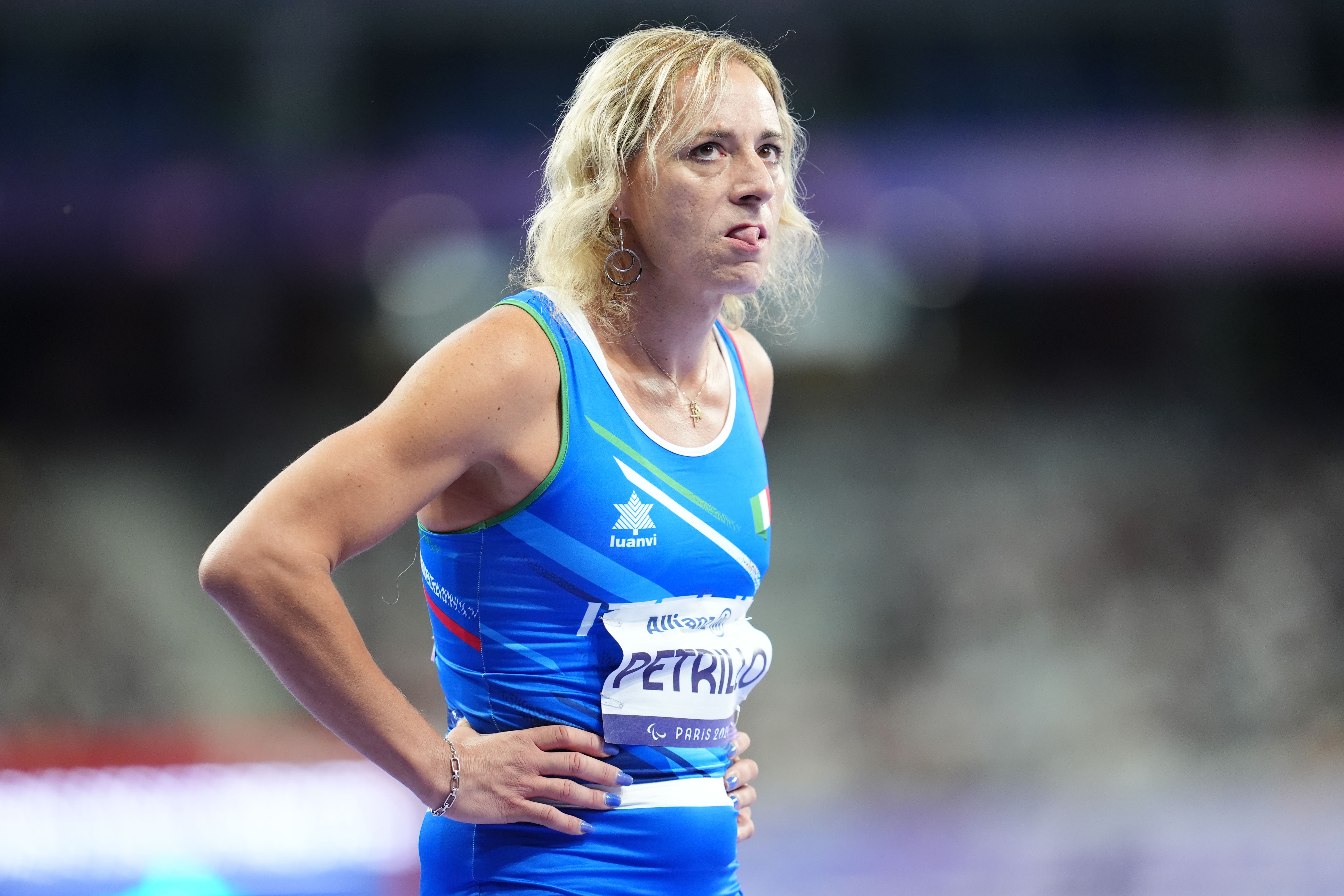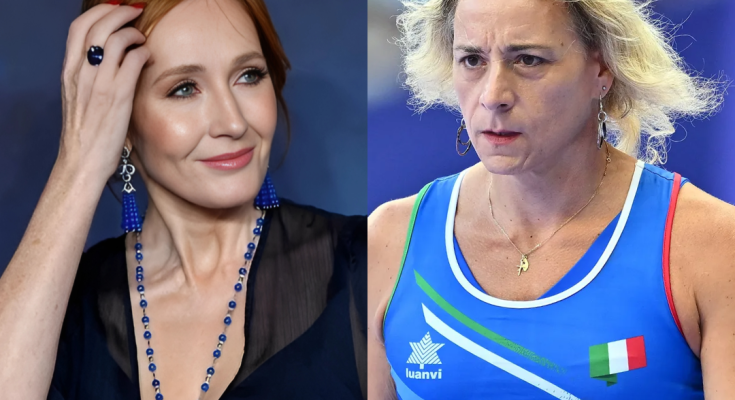In a shocking and controversial statement that has set the sports and literary worlds ablaze, author JK Rowling has accused transgender athlete Valentina Petrillo of being a “cheater” following her recent performance in women’s athletics. The heated exchange has ignited a fierce debate about gender, fairness, and the inclusion of transgender athletes in competitive sports.

A Bold Claim from the Author
The controversy began when Rowling, known for her outspoken views on gender issues, took to social media to criticize Petrillo, an Italian track and field athlete who made headlines as the first openly transgender woman to compete in major international women’s sports. Petrillo’s achievements in athletics, particularly in the women’s sprint events, have garnered both admiration and criticism from different corners of the sporting world.
Rowling, whose previous comments on gender have sparked widespread backlash, didn’t hold back in her assessment. “It’s clear to me that this is an example of cheating,” Rowling tweeted, referring to Petrillo’s participation in women’s athletics. “No amount of training can account for the natural physical advantages that male athletes have, even post-transition.”
Her comments immediately sparked outrage and support across social media platforms. Critics accuse Rowling of being transphobic and out of touch with the realities faced by transgender individuals in sports. Supporters, however, argue that Rowling is raising valid concerns about the fairness of allowing transgender women to compete against cisgender women, particularly in events that are heavily dependent on physical strength and speed.
Valentina Petrillo: The Athlete at the Center
Valentina Petrillo, 31, made history in 2023 when she became the first openly transgender woman to participate in major international competitions, including the World Athletics Championships. Despite facing the usual challenges of transitioning and adjusting to new hormone levels, Petrillo has excelled in her field, winning numerous national titles in Italy and placing highly in international events.
In response to Rowling’s accusation, Petrillo has remained calm but firm, defending her right to compete in the women’s category. “I’ve worked my whole life to be here, and my transition does not diminish my dedication to the sport,” she said in an interview. “Athletes like me face barriers that many don’t understand. But at the end of the day, I’m an athlete first.”
Petrillo also addressed the physicality of her transition, noting that the process of hormone therapy and surgery has led to a significant reduction in muscle mass and strength, common consequences of the transition process. “I’m not here to gain an advantage. I’m here because I love sports and because I want to prove that everyone deserves the opportunity to compete,” she stated.

The Gender Debate in Sports
Rowling’s comments touch on the ongoing debate about fairness in sports when it comes to transgender athletes. Critics argue that athletes who transition from male to female may still retain physical advantages — such as bone density, muscle mass, and cardiovascular endurance — even after hormone replacement therapy (HRT). This has led to questions about whether it is truly fair to allow transgender women to compete against cisgender women in competitive sports.
On the other hand, advocates for transgender inclusion in sports argue that banning transgender athletes or restricting their participation is discriminatory and harmful. Many experts in gender studies and sports medicine assert that while transgender women may face certain physical advantages in some sports, the transition process itself can have significant effects on muscle mass, strength, and endurance, often leveling the playing field over time.
The International Olympic Committee (IOC) and various sports organizations have implemented policies that allow transgender athletes to compete, provided they meet specific hormone level criteria, which are designed to minimize any inherent advantages that could be gained from male puberty.
A Wider Conversation
Rowling’s controversial remarks have once again placed her at the center of a national debate over gender identity, with critics accusing her of being transphobic, while others defend her right to question the fairness of transgender inclusion in women’s sports. This debate has become increasingly heated as more transgender athletes come to prominence in sports ranging from running to swimming and even combat sports.
While Rowling’s statement might have been an attempt to spark conversation about the biological realities of gender differences, many have argued that it dismisses the human element of transgender athletes’ journeys. “We can’t ignore the struggles that trans people face to even have the opportunity to compete. It’s not about an advantage, it’s about inclusion,” said sports psychologist Dr. Andrea Martinez.

Conclusion: The Path Forward
As the conversation unfolds, it’s clear that this issue will continue to be divisive, with no easy answers. What’s undeniable is that the rise of transgender athletes like Valentina Petrillo is changing the landscape of sports and forcing society to grapple with questions of fairness, inclusion, and the future of competitive athletics.
While JK Rowling’s comments have ignited a firestorm of debate, they have also highlighted the need for a more nuanced and respectful discussion about the intersection of gender identity and sports. It’s a conversation that will likely continue to evolve, but for now, the tension between fairness and inclusion remains at the heart of this global debate.
As Valentina Petrillo continues to compete and break barriers, it remains to be seen how the sports community will respond to the growing presence of transgender athletes in the years to come.



